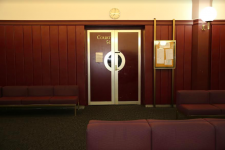Judges and Lawyers Must Assist Those Who Represent Themselves

Every year, tens of thousands of people represent themselves in courts across Australia.
They may do this because they cannot afford a private lawyer, are not eligible for public legal assistance such as legal aid, or simply wish to present their own case without relying on another person.
If you represent yourself in court, you may not be familiar with the various procedural and evidentiary rules which apply to court proceedings, which can put you at a disadvantage when up against a well-resourced prosecution or – in the case of civil proceedings – experienced lawyers.
The situation can result in injustice, as legal professionals may seek to take advantage of their expertise at your expense.
To mitigate potential injustice, the courts have long been required to take special care to explain the rules to self-represented litigants.
And the Law Society of NSW has published guidelines for solicitors who have self-represented litigants as their adversaries. The document is designed to help facilitate the “just, quick and cheap” resolution of court cases.
Assisting an opponent
Lawyers in our state are bound by a range of ethical obligations, including the duty to act in the best interests of their client and not to conduct themselves in a manner that would amount to a conflict of interest.
It may seem strange, then, that a lawyer may be required to assist an unrepresented opponent to ensure that justice prevails. Such conduct may even raise the ire of a lawyer’s client, and perhaps justifiably so as the client has paid the lawyer to achieve best possible outcome and sees their opponent as the enemy.
However, a lawyer’s duties can often conflict – for instance, the duty of candour to the court may at times be at odds with the duty to act in a client’s best interests, as the requirement to disclose certain information may hurt the client’s case.
It is a lawyer’s duty to assist the court to efficiently conduct proceedings, and this may at times require a lawyer to point certain information out to an unrepresented litigant.
The Law Society’s guidelines state that lawyers should explain procedural requirements to those who are self-represented, and even make them aware of resources available to them. According to the legal profession regulator, this may ultimately be in the interests of the lawyer’s client.
However, lawyers should certainly tread carefully and only provide as much assistance as necessary for the efficient progression of the case.
Duty of the judiciary
The duty of magistrates and judges to assist self-represented litigants was discussed by the NSW Supreme Court in Reisner v Bratt [2004] NSWCA 22.
Justice Hodgson and Ipp explained that courts must enable unrepresented persons to have a fair hearing, and part of this is helping them to properly put their cases.
This might involve advising a self-represented person about limitation periods, the consequences of failing to comply with court timetables or even certain evidentiary requirements.
However, the court also made clear that the assistance provided must not go beyond that of an impartial adjudicator, as this could raise accusations of bias or a perception thereof.
For instance, a court should never suggest a defence or prompt additional testimony or undertake an enquiry as to whether certain evidence exists. It is entirely permissible, however, to suggest to the litigant that they seek legal advice and to grant an adjournment to facilitate this.
The use of legalese
Is may seem a matter of common sense, but the Law Society recommends that legal professionals avoid legal terms when one of the parties is self-represented.
The use of plain language can help to ensure the layperson understands what is occurring and is able to respond accordingly.
Lawyers should also ensure self-represented persons are provided with relevant materials well in advance of a hearing, and the material uses – as far as possible – easy to understand language.
Independent third parties
Lawyers are urged to refer unrepresented persons to seek independent legal advice, whether that is private or publicly funded.
In civil cases, it is recommended that mediators be made available for settlement negotiations to increase the likelihood of a resolution.
Cost orders
The Law Society notes that proceedings involving self-represented litigants may lead to higher than normal cost orders, as hearings can take a lot longer than normal.
For this reason, it can in certain circumstances be beneficial for all concerned to have professionals run legal proceedings.






